| This Wikipedia page has been superseded by Portal:Christianity and is retained primarily for historical reference. |
| Note: Article entries are now being transcluded directly on the main portal page. However, this page should be retained for historical reference. |
The following selected biographies appear on Portal:Christianity. The layout for new additions is at Portal:Christianity/Selected biography/Layout.
- Current number of selected biographies: 15. (Update this number if you add more random biographies.)
|
Portal:Christianity/Selected biography/1 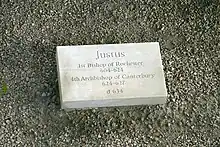
Portal:Christianity/Selected biography/2 Huldrych Zwingli (1 January 1484 – 11 October 1531) was a leader of the Reformation in Switzerland. Born during a time of emerging Swiss patriotism and increasing criticism of the Swiss mercenary system, he attended the University of Vienna and the University of Basel, a scholarly centre of humanism. He continued his studies while he served as a pastor in Glarus and later in Einsiedeln where he was influenced by the writings of Erasmus. In 1518, Zwingli became the pastor of the Grossmünster in Zurich where he began to preach ideas on reforming the Catholic Church. In his first public controversy in 1522, he attacked the custom of fasting during Lent. In his publications, he noted corruption in the ecclesiastical hierarchy, promoted clerical marriage, and attacked the use of images in places of worship. In 1525, Zwingli introduced a new communion liturgy to replace the mass. Zwingli also clashed with the Anabaptists, which resulted in their persecution. The Reformation spread to other parts of the Swiss Confederation, but several cantons resisted, preferring to remain Catholic. Zwingli formed an alliance of Reformed cantons which divided the Confederation along religious lines. In 1529, a war between the two sides was averted at the last moment. Meanwhile, Zwingli’s ideas came to the attention of Martin Luther and other reformers. They met at the Marburg Colloquy and although they agreed on many points of doctrine, they could not reach an accord on the doctrine of the presence of Christ in the eucharist. In 1531 Zwingli’s alliance applied an unsuccessful food blockade on the Catholic cantons. The cantons responded with an attack at a moment when Zurich was badly prepared. Zwingli was killed in battle at the age of 47. His legacy lives on in the confessions, liturgy, and church orders of the Reformed churches of today.Portal:Christianity/Selected biography/3 Gregory of Nazianzus was a 4th century Christian bishop of Constantinople. He is widely considered the most accomplished rhetorical stylist of the patristic age. As a classically trained speaker and philosopher he infused Hellenism into the early church, establishing the paradigm of Byzantine theologians and church officials. Gregory made a significant impact on the shape of Trinitarian theology among both Greek-speaking and Latin-speaking theologians, and he is remembered as the "Trinitarian Theologian". Much of his theological work continues to influence modern theologians, especially in regard to the relationship among the three persons of the Trinity. Along with two brothers, Basil the Great and Gregory of Nyssa, he is known as one of the Cappadocian Fathers. Gregory is honored as a saint in both Eastern and Western Christianity. In the Roman Catholic Church he is among the Doctors of the Church; in Eastern Orthodoxy and the Eastern Catholic Churches he is revered as one of the Three Holy Hierarchs along with Basil of Caesarea and John Chrysostom.Portal:Christianity/Selected biography/4 
Portal:Christianity/Selected biography/5 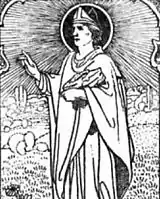
Portal:Christianity/Selected biography/6 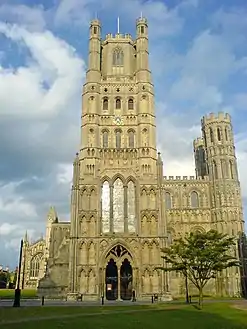
Portal:Christianity/Selected biography/7 Portal:Christianity/Selected biography/8 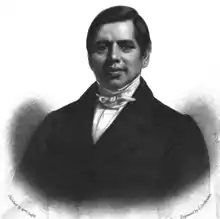
|
Portal:Christianity/Selected biography/9 Joseph W. Tkach was the appointed successor of Herbert W. Armstrong, founder of the Worldwide Church of God. Tkach became President and Pastor General of the church upon the death of Armstrong in 1986. Tkach spearheaded a major doctrinal transformation of the Worldwide Church of God, abandoning Armstrong's unconventional doctrines and bringing the church into accord with mainstream evangelical Christianity. His son, Joseph Tkach Jr., continued his work and in 1997 the Worldwide Church of God became a member of the National Association of Evangelicals. During Tkach's tenure, the changes that he implemented stirred much controversy and significant dissent among those who continued to follow Armstrong's theology. The dissenters labelled the changes as heresy and many left to form new church organizations. Within the mainstream Christian community, some have hailed Tkach's reforms, which brought a church from the fringe to orthodoxy, as unprecedented in the history of the Christian church. The first major change under Tkach's tenure was the WCG's doctrine on healing. Previously the church taught that true believers were healed by faith in God and not by doctors. Tkach asked the church leadership to study the question. Once Tkach was satisfied with the results of the study, he officially softened the church's teaching on the matter, encouraging members to seek proper treatment while retaining faith in God as healer.Portal:Christianity/Selected biography/10 Augustine of Canterbury (c. first third of the 6th century – 26 May 604) was a Benedictine monk who became the first Archbishop of Canterbury in the year 598. He is considered the "Apostle to the English" and a founder of the English Church. Augustine was the prior of a monastery in Rome when Pope Gregory the Great chose him in 595 to lead a mission, usually known as the Gregorian mission, to Britain to convert the pagan King Æthelberht of the Kingdom of Kent to Christianity. Kent was probably chosen because it was near the Christian kingdoms in Gaul and because Æthelberht had married a Christian princess, Bertha, daughter of Charibert I the King of Paris who was expected to exert some influence over her husband. Before reaching Kent the missionaries had considered turning back but Gregory urged them on and, in 597, Augustine landed on the Isle of Thanet and proceeded to Æthelberht's main town of Canterbury. King Æthelberht converted to Christianity and allowed the missionaries to preach freely, giving them land to found a monastery outside the city walls. Augustine was consecrated bishop of the English and converted many of the king's subjects, including thousands during a mass baptism on Christmas Day in 597. Pope Gregory sent more missionaries in 601, along with encouraging letters and gifts for the churches, although attempts to persuade the native Celtic bishops to submit to Augustine's authority failed. Roman Catholic bishops were established at London and Rochester in 604, and a school was founded to train Anglo-Saxon priests and missionaries. Augustine also arranged the consecration of his successor, Laurence of Canterbury. Augustine died in 604 and was soon revered as a saint.Portal:Christianity/Selected biography/11 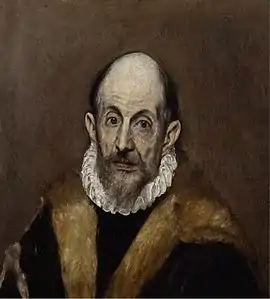
Portal:Christianity/Selected biography/12 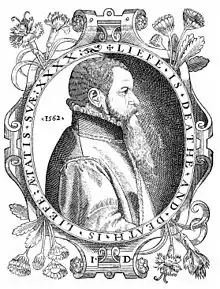
Portal:Christianity/Selected biography/13 
Portal:Christianity/Selected biography/14 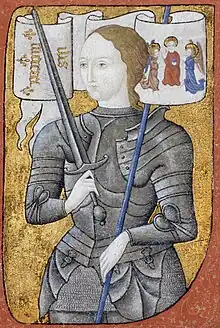
Joan was born to a propertied peasant family at Domrémy in northeast France. In 1428, she requested to be taken to Charles, later testifying that she was guided by visions from the archangel Michael, Saint Margaret, and Saint Catherine to help him save France from English domination. Convinced of her devotion and purity, Charles sent Joan, who was about seventeen years old, to the siege of Orléans as part of a relief army. She arrived at the city in April 1429, wielding her banner and bringing hope to the demoralized French army. Nine days after her arrival, the English abandoned the siege. Joan encouraged the French to aggressively pursue the English during the Loire Campaign, which culminated in another decisive victory at Patay, opening the way for the French army to advance on Reims unopposed, where Charles was crowned as the King of France with Joan at his side. These victories boosted French morale, paving the way for their final triumph in the Hundred Years' War several decades later. (Full article...) Portal:Christianity/Selected biography/15 
|
This is an archive of selected biographies that have appeared or will appear on Portal:Christianity in the current year. To suggest an item, please do so here.